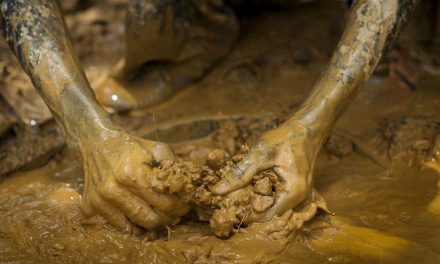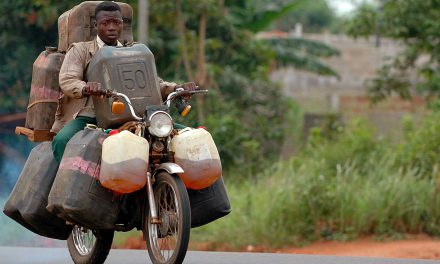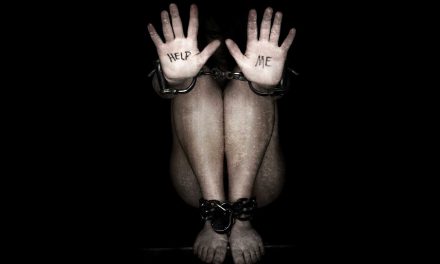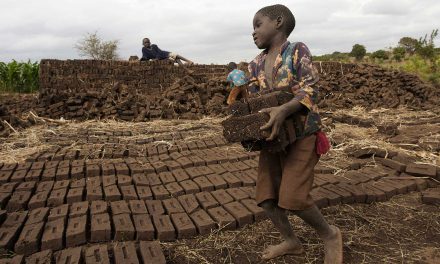When Tiyamalu Kaswaswa arrived in Juba, South Sudan, in June 2018, he had high hopes for the prospects that his new job held out. An accountant from Malawi, Kaswaswa had been hired by Trinity Energy, a firm operating in the petroleum market of the young country. It was a good job, offering good pay and benefits and the opportunity to exercise his considerable professional acumen.
Settling into his new position, he diligently conducted a review of the firm’s corporate governance and financial controls. Several issues needed attention, one of which was the handling of large volumes of cash, particularly at Trinity’s filling stations. This money – both South Sudanese pounds and United States dollars – needed to be properly accounted for and banked regularly. Mere prudence, he thought, but as he recalled later: “By doing that, I didn’t know I was stepping on the head of the snake.”
Kaswaswa had unknowingly stumbled onto a system of activity that he, as an ethical finance professional, was trained to act against. On his telling, not only were the cash payments used effectively to launder money, but it rapidly became clear that invoices were doing much the same, and that government officials were on the take. The lacunae in financial controls were not a failing of the business, but were a key feature of it. His role appeared to have been to provide a patina of legitimacy to the corruption beneath – not least, a pending audit.
After careful thought, he determined that he needed to report what he had found. As he was a citizen of Malawi, he decided to approach his country’s embassy in Dar es Salaam. On 25 October 2018, he boarded a plane for Rwanda, with a connecting flight to Tanzania, where he hoped to blow the whistle.

Whistleblowing is a term that has crept into the lingua franca of African governance. Exemplars have arisen across the continent: Athol Williams in South Africa, who testified about the involvement of Bain and Co in corruption relating to the country’s revenue authorities and the “state capture” project; Jean-Jacques Lumumba and Guylain Luwere in the Democratic Republic of Congo (DRC), who called out illegal banking transactions involving prominent companies and politically connected individuals; and John Githongo, a Kenyan journalist and one-time government minister, who exposed malfeasance involving technology procurement that extended to some of the highest offices in the country.
Crimes committed for gain invariably have as their object the acquisition of resources that can be exploited in the formal and “legitimate” political economy. Money siphoned off government contracts, the proceeds of the illegal wildlife trade, or the profits of illicit weapons dealing are mainly done with the expectation that they can feather the nests and fund the lifestyles of those who control them – or perhaps acquire the necessary political influence for an ideological goal.
Just how much transnational crime costs the continent is unknown, and quantifying it would depend on the definition. By one measure, illicit financial flows, Africa loses $88.6 billion annually (over the 2013-2015 period) according to the United Nations Conference on Trade and Development, equivalent to 3.7% of continental GDP. A report by the cumbersomely named High-Level Panel on International Financial Accountability, Transparency and Integrity for Achieving the 2030 Agenda (a UN body) defined the damages of this: “Illicit financial flows – from tax abuse, cross-border corruption, and transnational financial crime – drain resources from sustainable development. They worsen inequalities, fuel instability, undermine governance, and damage public trust. Ultimately, they contribute to states being unable to fulfill their human rights obligations.”
This concern is reflected elsewhere. In an overview of organised crime in Africa, published in 2019, criminologist researchers Mark Shaw and Tuesday Reitano, point to the intimate links between organised crime and all manner of governance and political pathologies, such as political conflict. This has implications for the future of the continent: “The quality of African governance and the sustainable and equitable trajectory of African development are being pulled off course by the undertow of illicit markets, criminal networks and corrupt interests.”
The more organised and lucrative the crime, the more sophisticated the operations behind it. This is all the more so in respect of transnational crime. Criminal networks need access to the resources and institutions – the people, goods and companies – from which wealth can be extracted. Where crime routinely crosses borders, where it is transnational, the networks to support it will typically need the influence to suborn or evade multiple layers of regulation and control erected to safeguard the respective states’ sovereignty. This means access to official channels for revenue and expenditure, exchange control and financial systems, border control protocols and so on. And since the proceeds of large-scale crime are often dispatched to be enjoyed outside their countries of origin – a matter of particular concern for Africa – systems to launder them may have to be developed in these jurisdictions too.
Sophisticated systems are a challenge to crack; doing so requires a detailed understanding of how they operate. People who have insider knowledge and are willing to step forward and bring misdeeds to light, provide one of the most effective means to deal with criminal activity of this nature. They have varied backgrounds. Kaswaswa had the professional background to identify the misdeeds he uncovered. Githongo had a political background with the access to information it provided. Williams, Lumumba and Luwere had worked in the organisations in which they made their disclosures. It’s also notable that in each of these cases, the criminality had a transnational dimension, involving cross-border contracts (Githongo), transfers of money (Kaswaswa, Lumumba and Luwere), or foreign stakeholders (Williams).
Julia Ntumba Kanyinda of the Platform to Protect Whistleblowers in Africa (PPLAAF, an acronym, drawing on its French name), described the situation to Africa in Fact in these terms: “Transnational crimes are hard to investigate, and even more so in Africa where investigative authorities are often not functioning properly. In this context, whistleblowers are essential to fighting transnational crime.”
Taking a stand against any sort of crime carries risks. The high-stakes malfeasance that most demands the intervention of whistleblowers carries risks that are escalated accordingly.
Waiting for his connecting flight to Dar es Salaam, Kaswaswa was taken into custody by Rwandan security operatives. He was later accused of stealing $350,000 from Trinity. Held in detention for several weeks, he was then returned to Juba.
“My mind was ready for death,” he says of his arrival back in Juba. Disturbingly, he was not shown through formal immigration procedures, but met by people associated with Trinity – and also with South Sudan’s National Security Service. It became clear that the company had an intimate relationship with some in the NSS and in the police, with the latter institutions seemingly doing Trinity’s bidding.
Kaswaswa was detained for more than a year, enduring assault and overwhelming psychological pressure. The demand seemed to be for him to admit to the theft, and perhaps return to work to assist in covering up of Trinity’s misdeeds. Later, it morphed into more blatant demands for bribes in exchange for his freedom.
To understand the scope of the risks and costs whistle-blowers face, Africa in Fact reached out to John Clarke, a South African social worker and anti-corruption campaigner. He pointed to a Foundation for Human Rights study of some 44 cases involving whistleblowers in the country. It makes for grim reading: six had been murdered, and 14 were threatened with physical violence; 13 reported dismissal, nine faced disciplinary action, 18 said their actions led to financial hardship, and 12 to reputational damage.
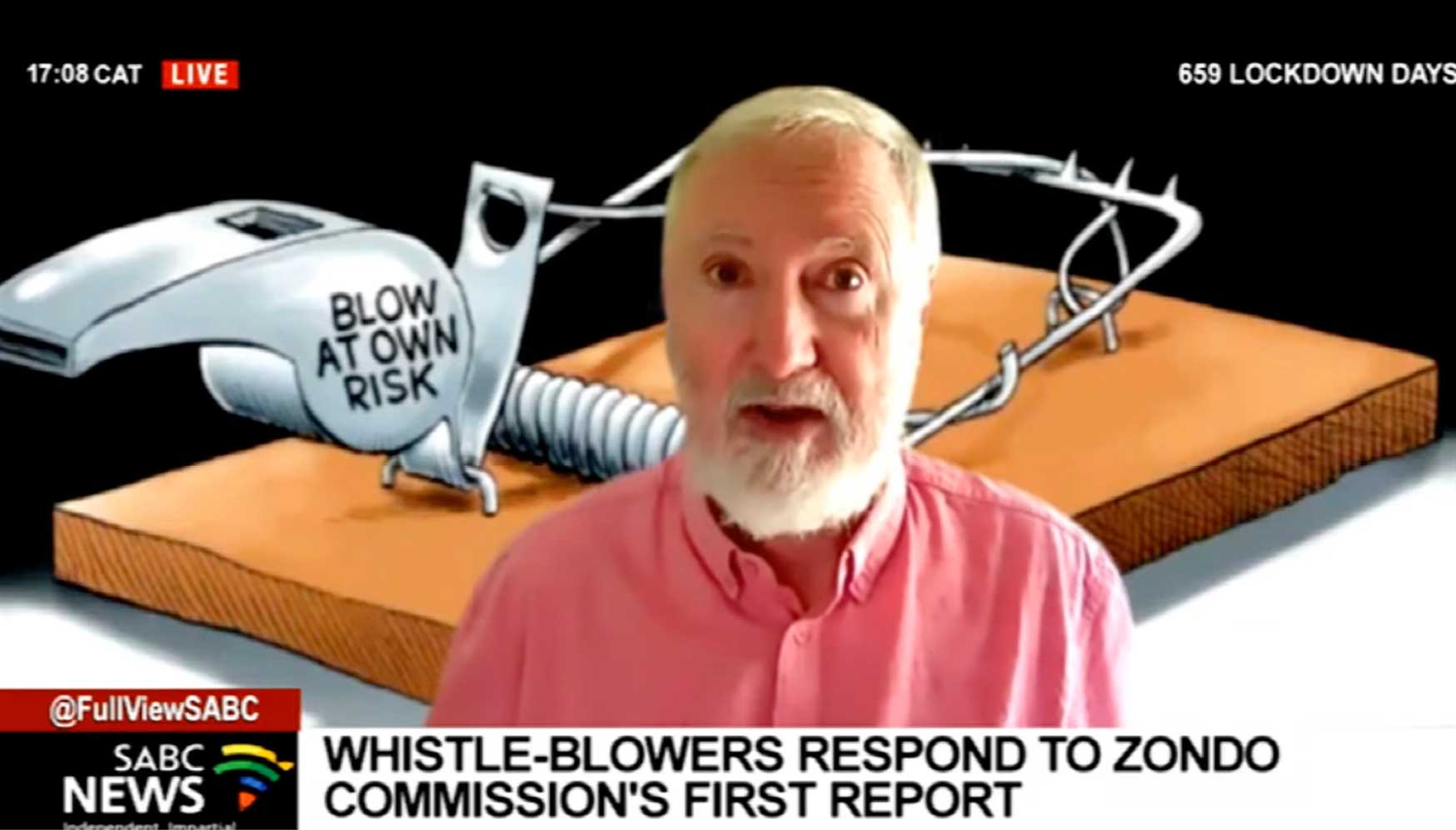
Anti-corruption campaigner John Clarke discusses the protection of whistleblowers on South Africa’s SABC News. Source: youtu.be/-W4nf6eTYhs
For Githongo, Williams, Lumumba and Luwere, threats and even physical attacks pushed them to seek sanctuary abroad. In other cases – as Kaswaswa’s case indicates – the dangers have been even more pronounced. PPLAAF says the dangers African whistleblowers face are compounded by deficiencies in the institutions that should offer them protection. “Given the weakness of state institutions and the lack of respect for the law in some African countries, whistleblowers who expose transnational crimes face a variety of dangers, often life-threatening. Because the crimes they expose are often committed by powerful and wealthy individuals, important financial and institutional means are used to harm the whistleblower. The most recent example is that of South African whistleblower Babita Deokaran who was murdered on 23 August 2021,” PPLAAF said.
African whistle-blowers also face an uncomfortable reality that though their actions may be beneficial to society, the dislocation to their lives is not easily rectified. Allison Tilley, another veteran South African civil activist, points out that while whistleblowers who lose their jobs (through victimisation or the collapse of the corrupt institution) in a society such as the United Kingdom might be able to find alternatives, in countries with fewer opportunities this may not be the case. A job in a stressed economy is not lightly thrown away.
Clarke adds a rider to this: “Many whistleblowers can’t back into society and get re-employed. Some companies don’t like the idea of highly principled employees, as they have to pay bribes as a matter of pragmatism.”
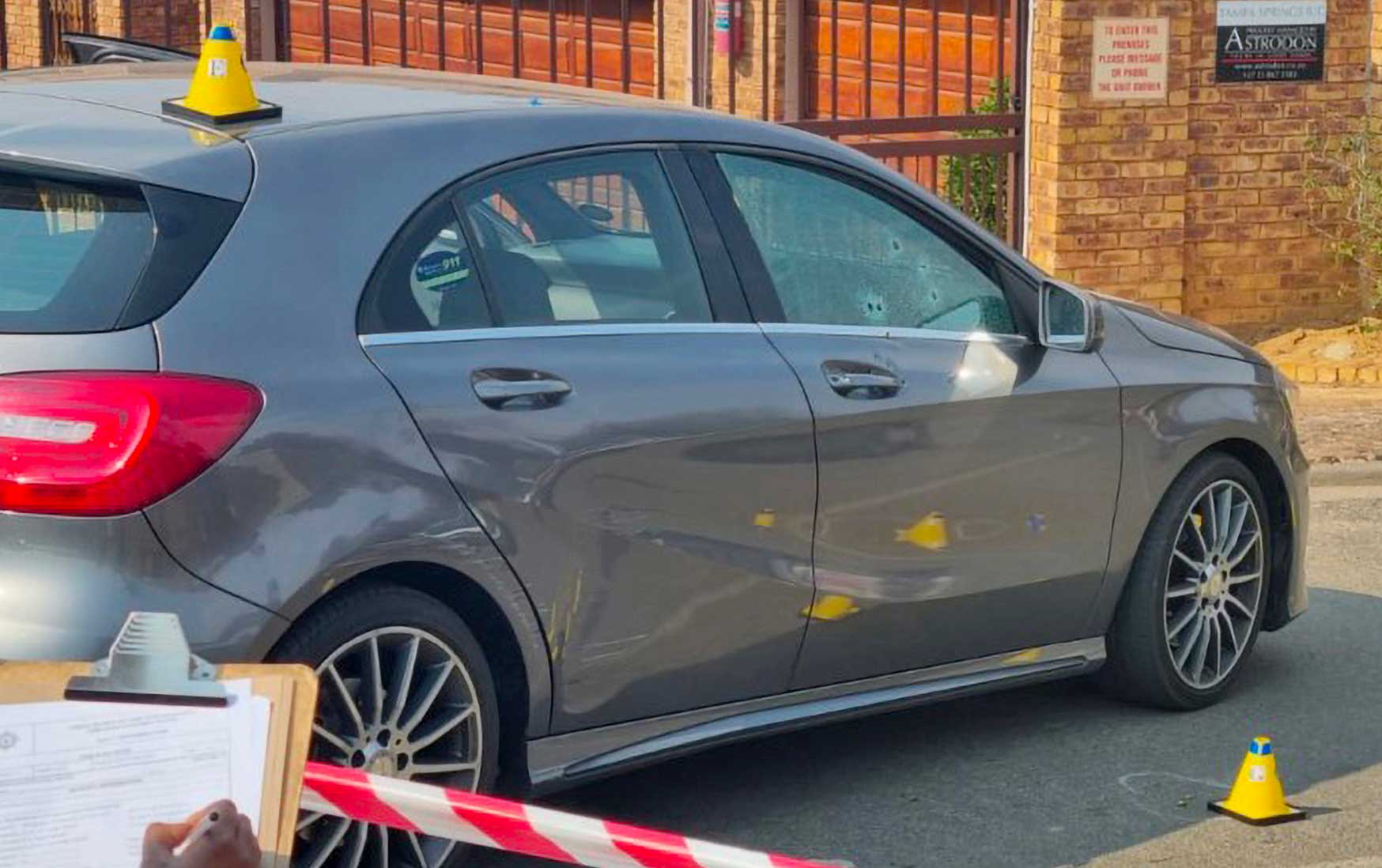
The bullet-ridden car of South African whistleblower Babita Deokaran, a Department of Health employee who was murdered on August 23, 2021 after she reported millions of rands worth of allegedly corrupt and fraudulent contracts. Source: assassination.globalinitiative.net
Then there is the isolation. Williams summed this up to the German media outlet Deutsche Welle: “All South African whistleblowers who expose state capture live in fear. Fear for their physical integrity, because the government does not provide protection, fear of legal action, because South African law does not provide adequate protection, and fear that they will not be able to feed their families, because of the negative stigma that causes companies to refuse to hire them.”
After more than a year in prison, the case against Kaswaswa went to court and inevitably fell apart. There was no evidence to support the charges and the conduct of the security services came under severe scrutiny. He was released from prison and left Juba at the beginning of April 2020. As the COVID-19 pandemic had hit the world, air travel was impossible and borders were closed, so he had to make a perilous overland journey using “unchartered routes”. Today he remains in a safe house.
If whistleblowers are to be encouraged to step forward, they need two things: an assurance that their testimony will be taken seriously and acted upon, and that they will be protected from adverse consequences.
On the first issue, the institutions meant to deal with malfeasance often lack the capacity to do so. Zambia-based governance and corruption expert Mbinji Mufalo told Africa In Fact that his research had shown widespread apathy: “Our consistent finding is that the majority of respondents do not report incidences of bribery because they believe ‘nothing useful will be done about it’. In short, the general public seemingly has no confidence in institutions mandated to fight corruption.”
On the second, protecting whistleblowers requires strengthening precisely those institutions in which confidence is lacking. How to do this is a conundrum. The PPLAAF recommends as a first step the institution of laws and protocols to establish firm guidelines and requirements for action. Says Kanyinda: “To effectively protect whistleblowers, it is imperative to create legal instruments at the national or regional level. These should not be declarative, but accompanied by concrete resources to really protect the whistleblower.”
Or, as Shaw and Reitano put it: “Efforts to suppress or prevent organised crime and illicit markets are unlikely to succeed unless equal attention is paid to the role of the state in the equation.” Others go further, suggesting immunity for those implicated in the wrongdoings they uncover, or even offering rewards in the form of a proportion of funds recovered.
In other words, the incentive structure around whistleblowing needs to change. To do this, it will be necessary to win public and official support and sympathy for whistleblowers. In this respect, Clarke suggests that it is important to understand that whistleblowers not only expose misdeeds, but in a broader sense bear witness to the pathologies, and to the resilience of those who confront them.
In that vein, it’s well to remember that Tiya Kaswaswa refused to pay the bribes asked of him – or to have his situation resolved through a discrete diplomatic deal. “I wanted justice,” he says. He used his time in prison to assist other convicts – including some condemned to death – to further their education. He left with his life shattered, but his integrity intact.
“It does not matter how long it will take you to have justice as long as you are honest and you have evidence to support [allegations of] corruption,” he says. “You can be victimised by all types of machinations but justice will set you free. The human spirit will get you through all the pains, torture, victimisation, threats and insults. Whistleblowers must stick to justice and save innocent, poor citizens. Poor people are suffering because of massive corruption.”
This is an important injunction in the fight against transnational crime.
- The author would like to thank John Clarke for his assistance in researching this piece, and Tiya Kaswaswa for sharing his story.
Terence Corrigan is an independent researcher, political consultant, writer, editor and illustrator. He is currently a research fellow at the South African Institute of International Affairs (SAIIA) in its Governance and African Peer Review Mechanism Programme and a policy fellow at the Institute of Race Relations (IRR).


